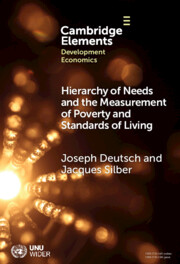1 results

Hierarchy of Needs and the Measurement of Poverty and Standards of Living
-
- Published online:
- 08 February 2024
- Print publication:
- 22 February 2024
-
- Element
-
- You have access
- Open access
- HTML
- Export citation

